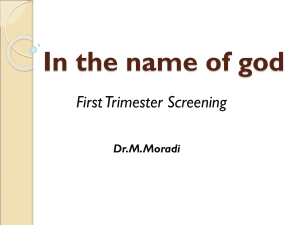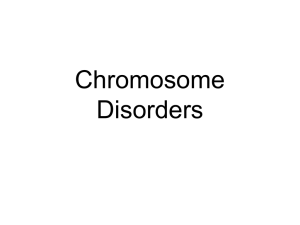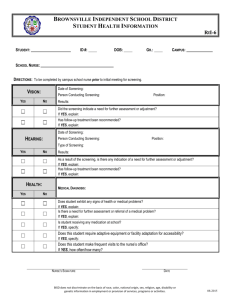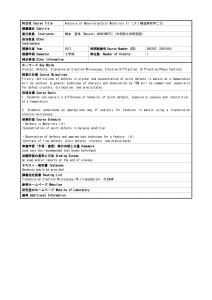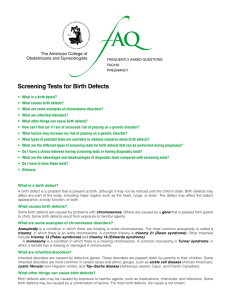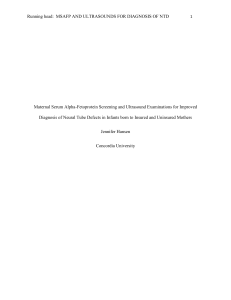CONTEMPORARY WOMEN`S CARE 4323 N. JOSEY LANE, SUITE
advertisement
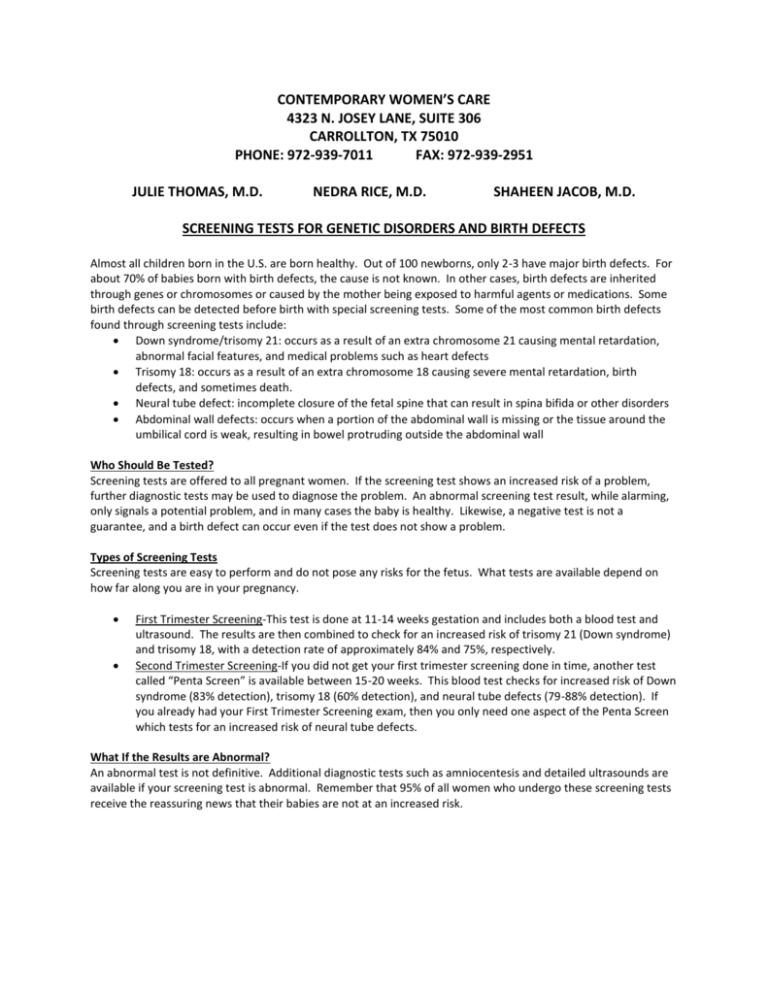
CONTEMPORARY WOMEN’S CARE 4323 N. JOSEY LANE, SUITE 306 CARROLLTON, TX 75010 PHONE: 972-939-7011 FAX: 972-939-2951 JULIE THOMAS, M.D. NEDRA RICE, M.D. SHAHEEN JACOB, M.D. SCREENING TESTS FOR GENETIC DISORDERS AND BIRTH DEFECTS Almost all children born in the U.S. are born healthy. Out of 100 newborns, only 2-3 have major birth defects. For about 70% of babies born with birth defects, the cause is not known. In other cases, birth defects are inherited through genes or chromosomes or caused by the mother being exposed to harmful agents or medications. Some birth defects can be detected before birth with special screening tests. Some of the most common birth defects found through screening tests include: Down syndrome/trisomy 21: occurs as a result of an extra chromosome 21 causing mental retardation, abnormal facial features, and medical problems such as heart defects Trisomy 18: occurs as a result of an extra chromosome 18 causing severe mental retardation, birth defects, and sometimes death. Neural tube defect: incomplete closure of the fetal spine that can result in spina bifida or other disorders Abdominal wall defects: occurs when a portion of the abdominal wall is missing or the tissue around the umbilical cord is weak, resulting in bowel protruding outside the abdominal wall Who Should Be Tested? Screening tests are offered to all pregnant women. If the screening test shows an increased risk of a problem, further diagnostic tests may be used to diagnose the problem. An abnormal screening test result, while alarming, only signals a potential problem, and in many cases the baby is healthy. Likewise, a negative test is not a guarantee, and a birth defect can occur even if the test does not show a problem. Types of Screening Tests Screening tests are easy to perform and do not pose any risks for the fetus. What tests are available depend on how far along you are in your pregnancy. First Trimester Screening-This test is done at 11-14 weeks gestation and includes both a blood test and ultrasound. The results are then combined to check for an increased risk of trisomy 21 (Down syndrome) and trisomy 18, with a detection rate of approximately 84% and 75%, respectively. Second Trimester Screening-If you did not get your first trimester screening done in time, another test called “Penta Screen” is available between 15-20 weeks. This blood test checks for increased risk of Down syndrome (83% detection), trisomy 18 (60% detection), and neural tube defects (79-88% detection). If you already had your First Trimester Screening exam, then you only need one aspect of the Penta Screen which tests for an increased risk of neural tube defects. What If the Results are Abnormal? An abnormal test is not definitive. Additional diagnostic tests such as amniocentesis and detailed ultrasounds are available if your screening test is abnormal. Remember that 95% of all women who undergo these screening tests receive the reassuring news that their babies are not at an increased risk.
